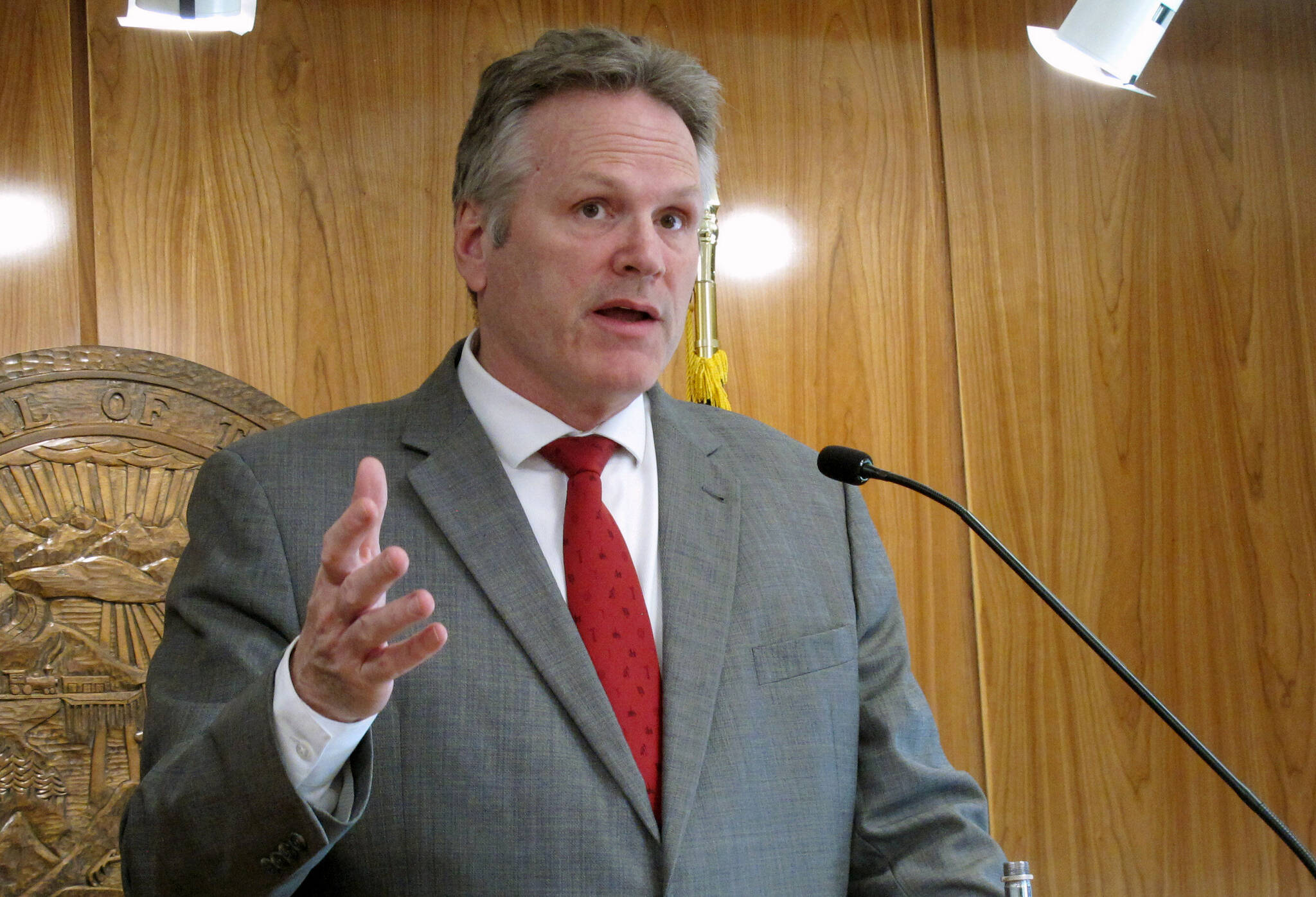Alaska board delays action on proposal to bar transgender girls from girls’ high school sports teams
The state board of education Wednesday delayed action on a proposal that would bar transgender girls from participating on high school girls’ athletic teams in Alaska, with several board members saying they wanted more time to consider the issue.
Opponents of the proposal called it discriminatory and unconstitutional and say it likely will lead to litigation. Supporters, including Republican Gov. Mike Dunleavy, said it is needed to ensure fairness in girls’ sports.
The board heard more than 2 1/2 hours of public testimony Wednesday, in addition to receiving roughly 1,400 pages of written testimony ahead of the meeting, and went into executive session on the matter. Later, several board members said they favored postponing action on the proposed rule at Wednesday’s meeting but taking up the issue at a future date, perhaps during a special meeting.
Two new board members were sworn in at the start of Wednesday’s meeting and another member was absent.
At least 22 states have laws that prevent transgender girls from playing on girls’ teams in K-12 schools, and North Carolina’s Republican-controlled Legislature is preparing to try to override Democratic Gov. Roy Cooper’s veto of such a measure there. Some of the laws also keep transgender boys off of boys’ teams, and some apply the ban to college athletics.
Alaska’s proposal isn’t tied to enacted legislation. Similar proposals in recent years, including from state Sen. Shelley Hughes, have died in the state Legislature or have failed to gain traction.
Hughes, a Republican, told the board she wants “what’s best for all students, all athletes” — and said the proposed rules “will not marginalize anyone.”
At least one school district, the Matanuska-Susitna Borough district, last year adopted a policy that restricts transgender girls from competing on girls’ sports teams. The district is in a part of a state known as socially conservative and where Dunleavy and Hughes are from.
The board of education earlier this year passed a resolution calling on the Department of Education and Early Development to develop rules that “prioritize competitive fairness and safety on the playing field while allowing all students to participate in activities.”
The resolution called for rules creating a girls division limited to participation based on sex assigned at birth, a division for athletes “who identify with either sex or gender” and an appeals process “for all students.”
But the rule up for consideration is briefer, stating that if a high school has a team for girls, “participation shall be limited to females who were assigned female at birth.”
Mike Garvey, advocacy director with the American Civil Liberties Union of Alaska, in an interview said officials have not explained why the proposed rule differs from what the board described in its resolution. But he said both approaches are problematic and raise privacy and due process concerns.
“This is not about fairness in sports to us,” he said. “This is about a broader social movement to deny the existence of transgender people and to create an environment where it’s hard for transgender people to exist alongside their peers in everyday life.”
Chandra Poe, the mother of a transgender girl, said in comments that the amount of time her family has spent this year, “standing up for our transgender child’s basic human rights, is substantial. It is exhausting. And it is so, so damaging for our child to hear these persistent attacks on them by people in elected or appointed positions of leadership,”
Billy Strickland said by email Monday that he knows of one transgender athlete who has competed in state sports during his roughly 10-year tenure as executive director of the Alaska School Activities Association, though he said the association does not track the number.
Dunleavy has long expressed support for local control but said in written comments that “interscholastic activities are not confined within one school district.” He described the proposed rule as a “necessary and appropriate parameter to ensure fairness, safety and equal opportunity for female athletes.”

